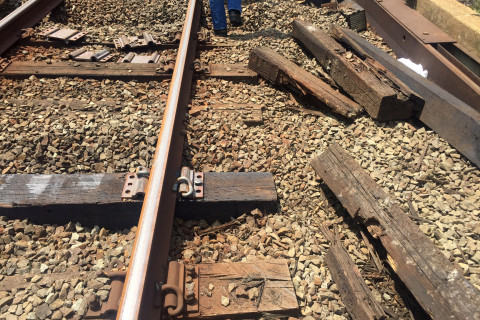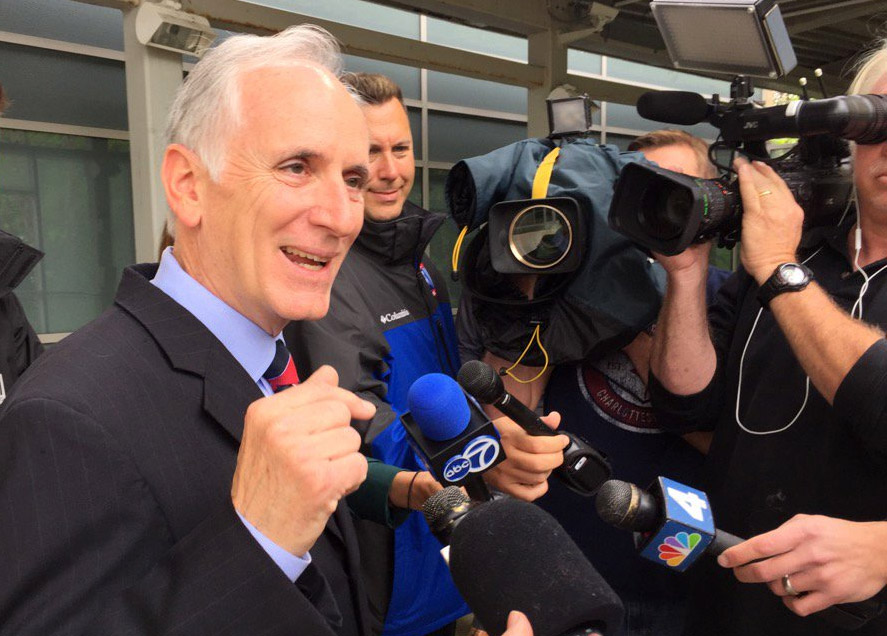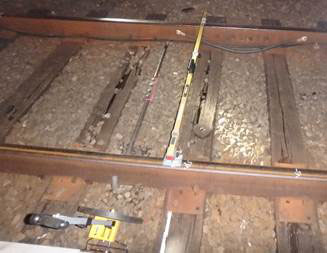ON THE ORANGE LINE — Metro trains are slowing down for many stretches across the system, and Metro General Manager Paul Wiedefeld said a main reason is that inspectors are finally identifying track issues and taking them seriously.
Since the derailment near the East Falls Church station three months ago, “We brought in a lot of different contractors; we’ve trained our track inspectors, and you’ve noticed that we’ve had a lot more slow speeds,” Wiedefeld said in an interview.
In some cases, a potentially dangerous number of the fasteners that hold rails in place have been missing. In others, there have been problems with rail ties or other parts of the system.
“Rather than push this off to the night, which is what we were doing — and that’s why you had 19,000 work orders piling up and piling up — they’re saying ‘No; this is potentially a risk; we have to stop it; we have to do it,” Wiedefeld said.
He said he feels like after 10 months, he and his team finally have their arms around some of the major issues facing the system.
“We talk about a culture of safety,” he added. “Well, a culture of safety means you do something.”
Metro has at times notified riders of speed restrictions after riders had begun to ask why it felt like they were riding through stretches of track more slowly than usual. In other cases, Metro has alerted riders to major speed restrictions or more significant issues that have forced single-tracking shortly after the problems were identified.
Overall though, Wiedefeld sees the increasing recognition of track issues as a sign of progress.
“Until we get, you know, to the other side of that hill, that’s where we’re going to be.”
Riders want to know where the other side is after a 40-year hole.
“I do too,” Wiedefeld said.







